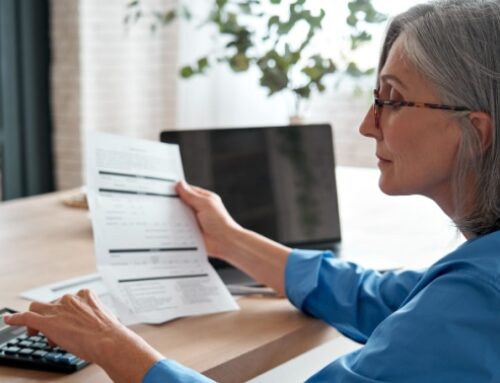When your salary exceeds the £100,000 threshold, you may be surprised to see how much more you pay in tax.
This isn’t because you enter a new tax bracket, as the additional rate doesn’t start until you earn more than £125,140. Rather, it’s because once your income exceeds the £100,000 threshold, your Personal Allowance tapers, meaning you lose a portion of your tax-free income which can lead to you paying a 60% tax rate.
There is a simple way to get around this, so read on to find out about the 60% tax trap and what you can do to avoid it.
The 60% tax trap applies to earnings between £100,000 and £125,140
Most people have a standard tax-free Personal Allowance for their income of £12,570 a year. This means that you do not pay tax on any income you earn up to that amount.
However, once your annual income exceeds £100,000, your Personal Allowance tapers.
The Personal Allowance falls by £1 for every £2 over £100,000 you earn. This means that once your income reaches £125,140, you no longer have a Personal Allowance.
The tapering of the Personal Allowance means that you can pay an effective 60% tax rate on the portion of your income between £100,000 and £125,140.
For example, let’s say you earned £110,000 a year, which is £10,000 above the threshold.
Of that £10,000, you would pay £4,000 in higher-rate Income Tax. You would also lose £5,000 of your Personal Allowance. That £5,000 would be subject to the higher rate of Income Tax, costing you £2,000.
So, of the £10,000 you earned over £100,000, you would lose £6,000 of it to taxes, which equates to a 60% tax rate.
Thankfully, there’s a simple way to avoid this trap that could even turn your problem into a tax-efficient solution.
One way to avoid the 60% tax trap is to pay more into your pension
One method to avoid the 60% tax trap is to pay some of your earnings over £100,000 into your pension.
Most people have a pension Annual Allowance of £60,000 (or 100% of your earnings, whichever is lower). This is a limit to the total pension contributions you and your employer can make before additional tax charges apply. Your Annual Allowance may be lower if your income exceeds certain thresholds, or you have already flexibly accessed your pension.
Making additional pension contributions from your income over £100,000 has a couple of benefits. First, you could claim tax relief on the amount you place into your pension. And second, you could reduce your taxable income back to a level where you can regain some of the Personal Allowance you may otherwise have lost.
Let’s look at an example to see just how much you could save by doing this.
Say you earn £125,140 a year and you pay Income Tax and make National Insurance Contributions at the rates set for 2024/25.
The table below shows the difference in your net income before and after you make an additional pension contribution.

Source: Royal London
In this example, your net income after making the pension contribution is lower.
However, your net income and your pension contribution combined are worth over £10,000 more than they would be if you didn’t make the additional pension contribution.
So, by paying some of your earnings over £100,000 into your pension, you could end up saving more than £10,000 in tax.
As you can see in the table, you do not need to contribute the full £25,140 excess over the £100,000 threshold. This is because the government will apply £5,028 in basic-rate tax relief to a £20,112 pension contribution.
The initial 20% of tax relief comes automatically, and if you are a higher- or additional-rate taxpayer you can usually claim further relief through self-assessment.
Get in touch
We can help you make the most of your income over £100,000 and ensure you don’t fall into tax traps. To find out more, get in touch.
Email d.ainsley@perennialwealth.co.uk or call 0117 959 6499.
Risk warnings
This blog is for general information only and does not constitute advice. The information is aimed at retail clients only.
Please do not act based on anything you might read in this article. All contents are based on our understanding of HMRC legislation, which is subject to change.
The Financial Conduct Authority does not regulate tax planning.
A pension is a long-term investment. The fund value may fluctuate and can go down, which would have an impact on the level of pension benefits available. Your pension income could also be affected by the interest rates at the time you take your benefits.





